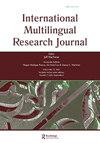运用戏剧教学法和语言支持探究二语学生对写作焦虑的感知
IF 2.1
1区 文学
Q2 EDUCATION & EDUCATIONAL RESEARCH
引用次数: 0
摘要
本定性研究旨在了解在戏剧教学法和语言学指导下二语学生作家对写作焦虑的感知。本研究对22名英语作为外语(EFL)学生的戏剧表演、反思、访谈和英语作文进行了定性分析,这些都收集自一所中国大学的英语议论文课。当学生接受基于戏剧的教学法和语言支持时,他们报告说他们的焦虑减少是一个情境敏感的过程,涉及多种情境因素的相互作用,例如,教师的持续调解和学生的持续调整。此外,学生在写作策划过程中接触到戏剧教学法,为学生创造了一个舒适的环境,减少了他们对获得写作所需主题知识的焦虑。学生们还认为,语言指导可以解开语言和内容之间的互动,是他们参与写作实践的情感支柱。本研究得出结论,戏剧教学法和语言指导相结合的情境敏感教学实践有助于减少二语学生在准备和练习写作过程中的焦虑。本文章由计算机程序翻译,如有差异,请以英文原文为准。
Exploring L2 students’ perceptions of their writing anxiety with drama-based pedagogy and linguistic support
ABSTRACT This qualitative research seeks to understand L2 student writers’ perceptions of writing anxiety when drama-based pedagogy and linguistic guidance are provided. This study draws on a qualitative analysis of 22 English-as-a-foreign-language (EFL) students’ episodes of dramatic presentations, reflections, interviews, and English essays collected from an English argumentative writing class at a Chinese university. When the students were exposed to drama-based pedagogy and linguistic support, they reported that their anxiety reduction was a context-sensitive process, which involved the interaction of diverse contextual factors, for example, the instructor’s constant mediation and students’ ongoing adjustments. In addition, the students’ exposure to drama-based pedagogy during writing planning created a comfortable environment for the students to reduce their anxiety about gaining the topic knowledge needed for their writing. The students also felt that the linguistic guidance, which unpacked the interaction between language and content, served as an emotional buttress for their engagement in their writing practice. The study concluded that the combined use of drama-based pedagogy and linguistic guidance as context-sensitive teaching practices could be helpful for L2 students’ anxiety reduction in the process of preparing and practicing writing.
求助全文
通过发布文献求助,成功后即可免费获取论文全文。
去求助
来源期刊
CiteScore
4.10
自引率
4.80%
发文量
19
期刊介绍:
The International Multilingual Research Journal (IMRJ) invites scholarly contributions with strong interdisciplinary perspectives to understand and promote bi/multilingualism, bi/multi-literacy, and linguistic democracy. The journal’s focus is on these topics as related to languages other than English as well as dialectal variations of English. It has three thematic emphases: the intersection of language and culture, the dialectics of the local and global, and comparative models within and across contexts. IMRJ is committed to promoting equity, access, and social justice in education, and to offering accessible research and policy analyses to better inform scholars, educators, students, and policy makers. IMRJ is particularly interested in scholarship grounded in interdisciplinary frameworks that offer insights from linguistics, applied linguistics, education, globalization and immigration studies, cultural psychology, linguistic and psychological anthropology, sociolinguistics, literacy studies, post-colonial studies, critical race theory, and critical theory and pedagogy. It seeks theoretical and empirical scholarship with implications for research, policy, and practice. Submissions of research articles based on quantitative, qualitative, and mixed methods are encouraged. The journal includes book reviews and two occasional sections: Perspectives and Research Notes. Perspectives allows for informed debate and exchanges on current issues and hot topics related to bi/multilingualism, bi/multi-literacy, and linguistic democracy from research, practice, and policy perspectives. Research Notes are shorter submissions that provide updates on major research projects and trends in the field.

 求助内容:
求助内容: 应助结果提醒方式:
应助结果提醒方式:


